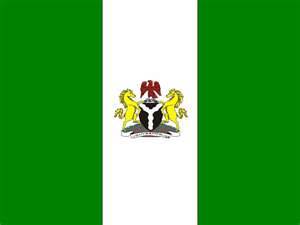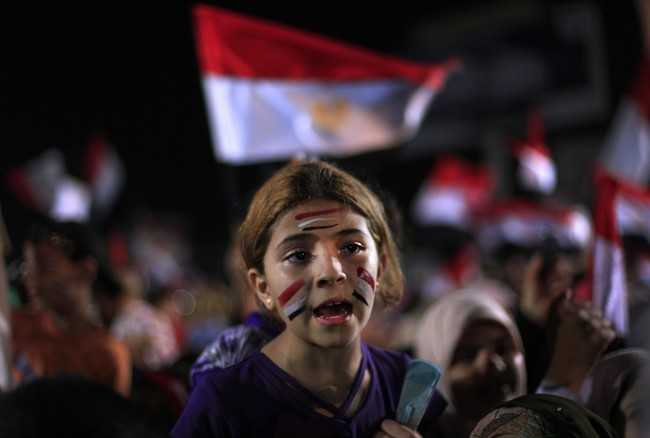By Olusegun Ogolo
On Wednesday the 31st of July 2013,INEC,Nigeria’s electoral commission approved the registration of the All Progressives’ Congress, (APC) as a political party in Nigeria.

The APC is the result of a merger of four political parties: All Progressive Grand Alliance (APGA),Congress for Progressive Change (CPC),All Nigeria Peoples Party (ANPP),and Action Congress of Nigeria (ACN).
Although the All Progressives’ Congress has been registered by INEC, the use of the acronym APC is still fiercely contested by at least two other ‘wannabe’ political parties.
Unsurprisingly,INEC’s eventual registration of the APC was hailed by the sponsors of the party as ‘…a victory for democracy…’ while other Nigerians have remarked that the emergence of the APC would ‘deepen our democracy’.
I am of the considered opinion that these Nigerians have jumped to a conclusion that may turn out to be completely wrong.
On Februarury 12 ,2013, ten governors met in Abuja ;this meeting was presided over by Lagos State Governor, Babatunde Fashola.Others in attendance were the governors of Ekiti, Kayode Fayemi; Ogun, Ibikunle Amosun; Oyo, Abiola Ajimobi; and that of Osun, Ogbeni Rauf Aregbesola.Also in attendance were Adams Oshiomhole of Edo; Rochas Okorocha of Imo; Abdulaziz Yari of Zamfara; Tanko Al-Makura of Nasarawa; and Kashim Shettima of Borno State.
At the end of the meeting a communique was issued .The communique read by Governor Tanko Al-Makura, announced that ”…the party would give priority attention to the promotion of radical social economic and political reformation of the country. In particular, the party said its priority programmes would be agricultural development, job creation, free education, affordable healthcare, infrastructural development, adequate power supply, eradication of poverty and corruption and rapid technological advancement and industrialisation. They declared: “We shall pride ourselves as social democrats that are committed to organise our society based on the values of justice for all and individual freedom where everyone’s basic needs are fulfilled.”(vanguard. February 13,2013).
A close examination of the Governor’s communique shows that it is another blast of hot air by Nigerian politicians.
How many of the governors attending this meeting can show with valid proof that they have implemented anything close to this communique in their various states? If they have done nothing of such in the states they currently govern, then the only thing they have to replicate on a national level is bad governance.
Politicians have taken this country for granted for too long, but can you really blame them? The citizens also contribute to this.
When will Nigerians rise up to the truth that acronym (APC, PDP, CPC, ACN, CPC, ANPP, APGA, e.t.c) peddling politicians will lead us nowhere. Nigeria is in dire need of reformed minds that would ultimately transform this great nation.
A close look at the sponsors of the APC shows that they may not be different from the members of the ruling People’s democratic Party (PDP).These APC fellows are solely interested in grabbing power at the national level from the PDP, pure and simple.
The PDP is ever quick to remind all that they are Africa’s largest political party: but they are silent on the truth that they are also Africa’s worst performing political party.
For fourteen (14) years the PDP has been in power, and every sector of national life has been put in reverse gear: a great percentage of any twenty four hour period is spent without electric power. Hospital environments in Sri Lanka are better than those in Nigerian government hospitals. Students take classes in dilapidated school facilities. Craters on many roads in Nigeria paint the picture of the aftermath of an air force campaign.
Strikes have become the order of the day: from University lecturers , to Health service workers to local government workers. The baton of strike seems to be one that is easily passed from one sector to the next available one ,all because of bad governance, thievery and a total dearth of visionary leadership.
The PDP is such a confused party that they appointed a sixty three (63) year old man as the youth leader of the party in Lagos state.
At the national level, the party has structured itself in such a way that it can only accommodate a pack of elderly individuals that are known to have mismanaged or contributed to the mismanagement of the affairs of this nation.
Whilst I have absolute respect for the elderly, I firmly believe that national interest should come first and not the narrow interest of these sectional minded individuals.
Prof Wole Soyinka has been quoted as saying that the PDP is responsible for killing Bola Ige the former attorney general and minister of justice and has also referred to the PDP as a nest of killers (Punch,July 29,2003.Daily Independent,June 14 2013)).
But is this not also true of the APC?
For example, former governor of Borno State and a key member of the newly formed APC, Senator Ali Modu-Sherrif has been accused of having links with the terrorists group, Boko Haram (National Mirror, Oct 27, 2012); Tanko Al-Makura,Governor of Nasarawa state (the individual that read the APC communique, vide supra) has been accused of having a hand in the killing of 20 policemen in a village called Alakyo about 10km from Lafia, the state capital (Blueprint .May 23, 2013).
My argument is that the difference between the new registered APC and the ruling PDP is exactly the same difference between twelve and a dozen.
These two groups can never (especially as currently composed) deliver the change Nigeria and Nigerians so desperately need.
The prognosis for 2015 is either that these politicians and their parties (irrespective of acronym) will wax stronger by their unpatriotic acts of thievery,bad governance and poor leadership while the nation is continually mired in the cesspool of underdevelopment OR Nigeria will arise progressively and radically with the concomitant demise of this pack of self aggrandizing politicians.
WANTED:A NATIONAL DELIVERER.
Further Reading:
https://spearide.wordpress.com/2012/12/20/authentic-leadership/
http://www.vanguardngr.com/2013/08/the-making-of-apc-and-the-storm-ahead/
http://www.punchng.com/news/obasanjo-had-a-killer-squad-as-president-former-associate/
http://www.vanguardngr.com/2013/08/our-registration-victory-for-democracy-apc/
http://www.tribune.com.ng/news2013/index.php/en/component/k2/item/18184-apc’s-long-walk-to-life.html
http://www.nigeriamasterweb.com/paperfrmes.html
http://www.punchng.com/news/apc-presidential-ticket-north-woos-danjuma/
http://pointblanknews.com/pbn/exclusive/polio-vaccines-dont-cause-infertilitymodu-sherriff-was-an-ally-of-late-boko-haram-kingpin-says-jonathan/



 Expanding targets in Syria: Barack Obama. Photo: Getty Images
Expanding targets in Syria: Barack Obama. Photo: Getty Images











